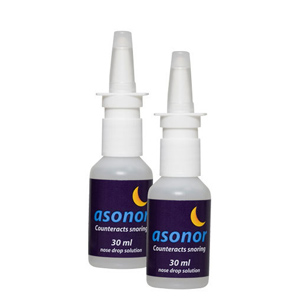It is quite a known fact that quitting smoking is not as easy as it may seem, and many people face significant difficulties during the process. Sleep disorders are a common side effect of nicotine withdrawal. Indeed, your body will react in some during the smoking cessation period. It is known as withdrawal syndrome. During this phase, cessation is accompanied by several symptoms like fatigue, irritability, anxiety, weight gain, increased appetite, and sleep disorders. Also, if you’re looking for snoring remedies, start by smoking cessation and don’t be discouraged as these disorders are temporary.
No Smoke, No Sleep?
According to experts and people who have been in the smoking cessation period, sleep disorders are frequent and last for about three weeks or so. It is because of the lack of nicotine, which is not easy for your body to do without.
Some experts also confirmed that sleep disorders make the smoking cessation phase more daunting and encourage relapse. Almost half of the former smokers experience trouble sleeping while they are in the quitting period. It leads to a sleep deficit which makes it harder to stay away from cigarettes.
Insomnia is a part of the criteria for smoking cessation syndrome, night awakenings and daytime dizziness are frequently experienced. These are anticipated points for relapse. Furthermore, nicotine replacement therapy results in recurrent awakenings, a reduction in total sleep duration and a sudden increase in nightmares and dreams.
Some expert doctors will recommend smoking cessation for snore stop; however, you must consider sleep disorder and ask for reliable tips to handle the situation. You should follow the suggested tips with complete dedication.
Tips for Better Sleep During Smoking Cessation
To ease your difficulties and help sleep better at night, you can use one or more of the following tips, depending on your preference:
Reduction in Caffeine: Almost everyone knows that caffeine is a stimulant. Though, some people might not know that caffeine inside the smoker’s body is metabolised at about twice the pace compared to a nonsmoker. It results in a high level of tolerance to caffeine. So, when you quit smoking, the amount of caffeine you’re used to consuming might lead you to be anxious and jittery. It is better to cut down caffeine from your regular regime for a while, particularly if you’re experiencing trouble-sleep.
Get a Massage Session: Either you can schedule a professional massage session, or you can ask your partner or another willing pair of hands to assist you in reducing the stress out of your muscles. If you can take out time for a full body massage, great, though spending 10 to 15 minutes on your neck, shoulder, scalp, and face can also do wonders for a good night’s sleep. Your sore muscles can relax, taking you into the dream world.
Have a Cup of Herbal Tea: There is a wide range of herbal teas available primarily to assist you to soothe and increase sleep. Visit a supermarket and explore the tea section, else you can ask the local health food store for some suggestions.
Take a Warm Bath: What is better than having a warm and relaxing bath before going to bed? You can create a soothing atmosphere in your bathroom by lighting some candles and using scented bath salts that can lead you to wash away all the stress. A warm bath is a perfect way to soothe your body and mind before going to sleep.
Listen to Soothing Music: Try listening to soft and mellow music as it can assist you to loosen up a bit and drift off to sleep. You can also listen to recordings of waves hitting the beach. Put your player or app on a setting, so that it can turn off itself as you fall asleep.
Get Some Exercise: You don’t have to join a gym or some classes, as a short 15-20 minutes walk will help you put to a sound sleep. However, if you still can’t fall asleep, go for a nice long walk a few hours before going to bed. Timing is exceptionally essential, so avoid exercising just before your bedtime as it boosts your senses up and then slows you down.
Don’t Drink Alcohol: Having a few drinks may make it easier to sleep in the beginning, but alcohol is known to disturb your sleep pattern. With alcohol in your system at times, you can wake up merely after sleeping for some hours. Say no to alcohol for better sleep as it is also one of the useful snoring remedies.
Don’t Nap: Taking naps during the day time is one of the best feelings in the world. However, you should avoid doing it as power naps are not your friends if you’re experiencing insomnia. It can be challenging to sleep during the nights after sleeping in the day. Besides, try to form a proper sleeping pattern; you should wake up at the same time in the morning and sleep at the same time at night.
Endure Inconveniences for Excellent Results
At times, people confuse sleep deprivation with insomnia. If you have a sleep disorder, you should look for the cause for it before concluding. Work stress or some traumatic incident can often lead to psychological issues that cause hindrance in sleep. Also, body pain and sickness can lead to sleep deprivation.
However, in smoking cessation, the physical withdrawal phase is a temporary condition. Sooner or later, your right sleep patterns will return, considering you didn’t have insomnia before you quit smoking. By adequately following the given advice, your inconveniences can be significantly reduced with time.
That is why you should be patient and don’t think to abandon the smoking cessation cure as it will also lead to snore stop. Try to endure a few temporary sleep disorders and get rid of the tobacco usage. In case, you notice symptoms beyond the first month or so, make sure to schedule an appointment with your doctor to ensure smoking cessation is responsible for what you’re experiencing.







